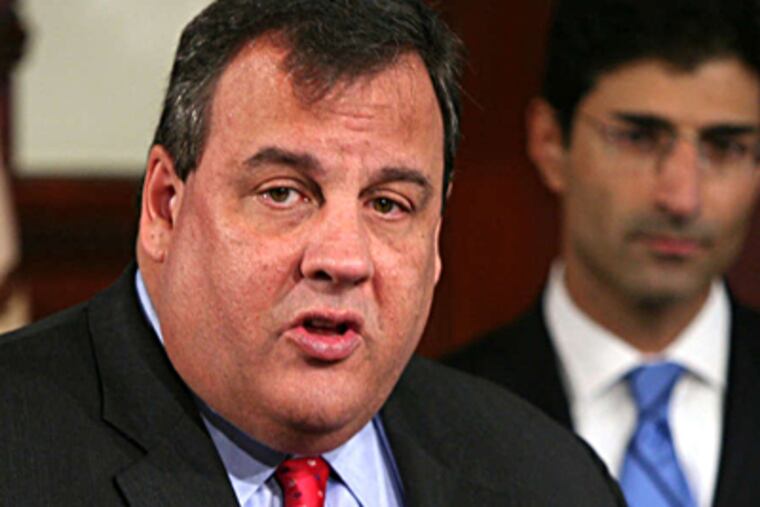Inquirer Editorial: Christie blowing smoke to block medical pot use
Medical marijuana has been declared a prescription drug by the Legislature, so why is Gov. Christie trying to charge a sales tax when it's purchased?

Medical marijuana has been declared a prescription drug by the Legislature, so why is Gov. Christie trying to charge a sales tax when it's purchased?
Is it out of spite because he couldn't block the legislation? Whatever the reason, it's wrong. Medical marijuana should be treated like other prescription and over-the-counter drugs, whch means no sales tax would be collected.
The Christie administration jumped on an apparent loophole in the law when the Treasury Department announced last week that medical marijuana would be subject to a 7 percent sales tax - a potential revenue windfall for the state's coffers, but an additional financial burden for cancer, AIDS, multiple sclerosis, and other patients prescribed marijuana to relieve pain.
Because the 2010 law was silent on the matter, the Christie administration decided to take it upon itself to determine the "legislators' intent" when they drafted the bill. Treasury spokesman Andrew Pratt said, "The sponsors agree it was their intention to tax the sale of medicinal marijuana." But four of the legislation's five primary sponsors said they were never consulted and never expected the drug to be taxed. Nor did they believe it should be.
The administration's heavy hand should also cause a measure of angst for New Jersey's large pharmaceutical industry, which now must fear the taxman will come after other drugs.
The medical marijuana law has many people wondering if New Jersey is about to take a giant leap toward legalizing marijuana for recreational purposes as well. But Christie, a former federal prosecutor, has vowed to veto any such measure.
If nothing else, the approval of medical marijuana should open the door to the honest conversation the entire country needs to have about the war on drugs, which has produced dubious results since being declared decades ago. Almost half of all drug arrests nationally are for marijuana, and nearly 80 percent of those are for possession, swelling the nation's prisons.
A Rutgers-Eagleton poll last year found that nearly 60 percent of registered voters in New Jersey support relaxing the punishment for possession of small amounts of marijuana. Fourteen states, including New York and Connecticut, have passed similar measures.
Currently, marijuana possession is a disorderly-persons offense in New Jersey, the equivalent of a misdemeanor. It is punishable by up to six months in jail, $1,000 in fines, and a criminal record that cannot be expunged, which can make it difficult to find gainful employment.
Last month, voters in Washington and Colorado passed initiatives making recreational marijuana use legal in their states, with reasonable restrictions on age and quantity available.
Christie has proposed requiring mandatory drug treatment, rather than jail, for nonviolent drug offenders. But it appears unlikley that the former enforcer of federal laws that don't even recognize medical marijuana as legal would go along with any effort to decriminalize recreational marijuana use.
It's worth noting that Christie opposed the medical marijuana law, which was signed by former Gov. Jon Corzine, and he put up roadblocks that have delayed its implementation. So far, 318 patients statewide have registered for medical marijuana in New Jersey. But only one dispensary where it can be legally purchased, in Essex County, has been scheduled to open.
The medical marijuana sales tax being imposed by Christie is yet another insult to patients already frustrated by the numerous delays, says Ken Wolski, executive director of the Coalition for Medical Marijuana-New Jersey, an advocate for the patients. He's right. Christie needs to order his Treasury Department to rescind its decision. If recreational marijuana is ever legalized, tax those sales, but don't make a prescribed medication any more expensive than it has to be.